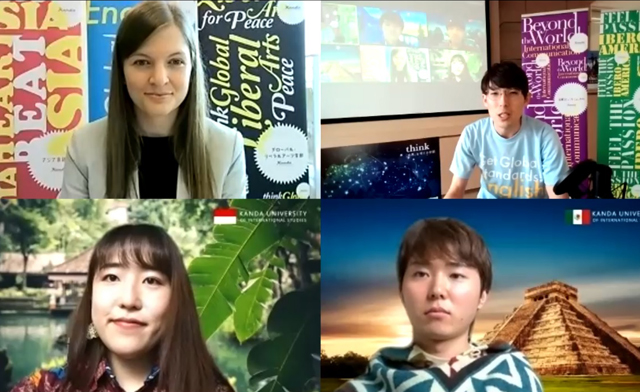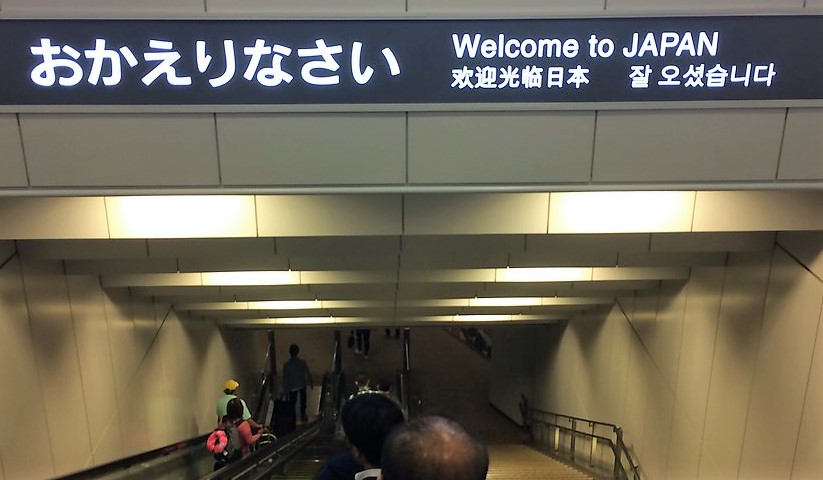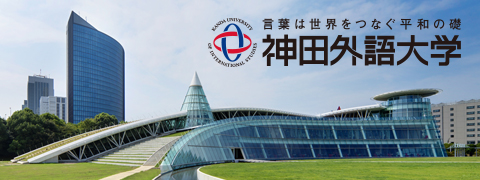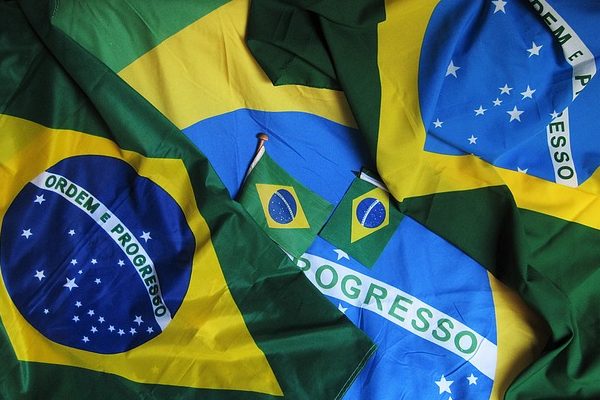STUDY
Ask Kelly!エピソード2
2020/07/10

この間の5月24日(日)に開催した、神田外語大学の初めての「オンライン説明会」(オンラインオープンキャンパス)へ参加した方にアンケートをとりました。
そのなかの1問が、「Kelly先生に聞いてみたいことがあれば教えてください」でした。
皆さんからの質問は、このブログでケリー先生が英語で少しずつ答えていくので、
興味のある人は是非読んでみてください!
① もっと英語力を付けるために普段からやっておいた方が良い事などあったら教えて欲しいです。

Hello, and thank you for your question.
I suggested 3 strategies in “Ask Kelly! Episode 1“, but today, let me introduce one more idea which you can use every day, even in Japan. Kids can do this, adults can do this, and it’s an easy habit that will help you practice English spelling.
My tip is this: 空書き!
In Japan, we can see English everywhere. Right now, I can see English text on a vending machine*, on the ATM, on posters, books, and signs… English words are everywhere! But often, we ignore English text because we don’t need to read it. I don’t need to see the English text “GOOD DRINK Drink Concept” on a vending machine– I already know the vending machine sells drinks!
But, let me ask you one question. In Japan, we see ファミリーマート frequently. The sign for ファミリーマート is written in English. So, here’s my quiz question: How do you write ファミリーマート in English? Do you know?**
So, when you see English around you, stop and think: “Can I spell this word from memory?” If your answer is “No,” try using one finger to “air-write” the word. This practice will help you notice English spelling. There is English all around us– we can ignore it, as usual, or we can use it as a study tool. Next time you’re bored on a train… why not try this technique?
*Vending machine →自動販売機
**…the correct answer is Family Mart! Did you get it right??
② バイリンガル、トリリンガルになると具体的にどう自分の世界観が変わるのか

I love this question! Thank you for asking it.
When you arrive at Narita Airport and get off the airplane, you can see a big sign. In English, it says, “Welcome to JAPAN.” In Japanese, it says, “おかえりなさい”. If you can read Japanese, you know that these two messages have different meanings. But people who only know one language might (mistakenly) believe that the messages are the same.
So, consider the two messages “Welcome to Japan” and “おかえりなさい” —
1) What are the differences?
2) Why are they different?
3) What assumptions are being made about people who read Japanese, and people who read English?
I see this an example of how the information we receive, and the way it is presented, depends on which language(s) we understand. And often, that information is not the same– different language speakers often receive different versions of a message, or they don’t receive a message at all. When we speak multiple languages, we can think more critically about these differences, and why they exist.
Understanding more than one language also helps me access more information, and access news faster. Especially during the current pandemic, having access to the latest news is important! Recently, I noticed a big delay between when Coronavirus news is published in Japan and East Asia, and when it is published in America. For example, on April 30, Kyodo News reported that some children who got COVID-19 were showing symptoms similar to Kawasaki Disease. The American news program CNN reported the same news 2 weeks later, on May 14. That’s a significant delay!
So for me, the biggest advantage of knowing two languages is that it helps me think critically about information, and it gives me access to a larger amount of information in the world.
Other people I know say that being bilingual or trilingual makes you more creative and open-minded. Each language has its own value sets, their own histories, and these things can impact how someone sees the world— like a pair of glasses. If you know many languages, you can see the world through different pairs of glasses, and it helps you notice different information, or consider multiple points of view. So, in my opinion, there are loads of benefits!
That’s all for now! Thank you for your questions, and I’ll see you next time!




